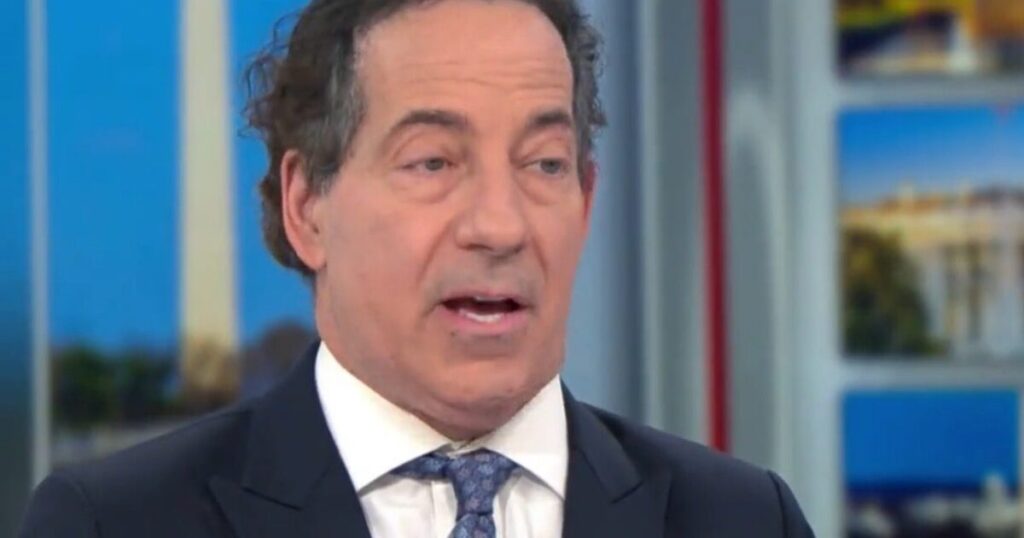In recent political discourse, the sanctity of democracy has become a focal point, particularly among Democrats. This fervor, however, faces scrutiny as the upcoming election approaches. Representative Jamie Raskin of California has emerged as a significant example of this contradiction, indicating that he and other Democrats may not necessarily support certifying the results of the 2024 election if former President Donald Trump secures a victory. Raskin’s past actions, notably during the certification of the 2016 election, suggest that his commitment to democratic processes may come into question. While Democrats often emphasize the importance of honor in elections, these pre-election comments hint at a willingness to overlook these principles when the outcomes do not favor their party.
Recent reports from Axios have revealed that several prominent Democrats, including Raskin, have not made definitive commitments regarding the certification of a Trump victory in 2024. This reluctance raises allegations of hypocrisy, particularly for those like Raskin who previously objected to the results of the 2016 election. He expressed uncertainty about endorsing a Trump win, indicating that his acceptance hinges on whether he believes the election was conducted fairly. Raskin claimed that Democrats do not engage in election fraud, casting doubts on the integrity of potential future elections, a stance that appears inconsistent with the party’s general narrative about the inviolability of the electoral process.
Raskin further fueled controversy with remarks made in September, where he prognosticated that Congress might indeed invalidate a Trump election victory. He mentioned the potential of creating “civil war conditions” in the United States as Congress navigates responses to a Trump win. This alarming commentary raises critical questions about the lengths to which some lawmakers might go to challenge election results, revealing a willingness to entertain extreme measures in pursuit of political goals. His comments underscore a broader trend in which the mechanisms of democracy are invoked selectively depending on partisan sentiments, further muddying the waters surrounding claims of a universal commitment to democratic principles.
During a February 2024 panel discussion, Raskin underscored his belief that congressional action could invoke the insurrection clause of the 14th Amendment to prevent Trump from assuming office, should he emerge victorious. He pointed to perceived inadequacies in how constitutional provisions are upheld, suggesting that significant aspects of the Constitution could be disregarded without consequence. Raskin’s statements illuminate a profound tension within the political landscape, where the legitimacy of constitutional processes is critically evaluated through a partisan lens. The invocation of constitutional clauses as tools for political maneuvering highlights the precarious balance between protecting democracy and jeopardizing it for immediate political gain.
The remarks from Raskin and other Democratic leaders suggest an underlying strategy that prioritizes party power over democratic ideals. The implications of such a strategy could spell significant ramifications for the future of American democracy. If party loyalty supersedes commitment to electoral integrity, the principles upon which democratic governance relies may be endangered. This dynamic mirrors broader national trends where partisan divisions increasingly dictate the acceptance of electoral outcomes, with both major parties occasionally undermining trust in the democratic system they profess to uphold.
In an environment where winning is often prioritized above all else, the rhetoric surrounding democracy can devolve into mere political posturing. The situation presents a multifaceted dilemma for voters who must navigate these complex dynamics while assessing candidates and their genuine commitments to the democratic process. As elections loom on the horizon, the role of leaders in shaping public perception of democracy will be critical, underscoring the need for accountability and integrity in the face of burgeoning partisanship and the apparent willingness to manipulate democratic norms for partisan advantage. This ongoing dialogue about the essence of democracy and the responsibilities of elected officials is vital in ensuring that electoral integrity remains a foundational pillar of American governance.

